The 20 most influential people in Australian agriculture revealed
Australian agriculture’s biggest players set the agenda and wield unrivalled influence over our $90 billion a year industry. See who made the list.
It’s been another big year for Australian agriculture, with the annual production value soaring to a record-breaking $90 billion.
Terrific harvests and strong commodity prices were key to that result – a feat due in no small part by the thousands of farmers across the country.
And as always, there are a few key powerplayers intrinsic to shaping those fortunes, good and bad.
So back again for 2023, it’s The Weekly Times’ annual list of the top 20 most influential people in Australian agriculture.
There are politicians, business leaders and lobby groups; some pulling the levers and others directing which way it should go. They have been chosen for their influence of Aussie ag, for how their actions affect the entire industry, or for their ability to make the big calls.
There are a few changes to the list this year. We’ve removed the international politicians, to instead focus on the domestic influencers whose actions are having the most direct impact on the ground.
That doesn’t mean those global players are any less significant of course; 2024 will bring elections in the US and European Union, while our relationship with China is still on the mend. The effects from the conflict in the Middle East and war in Ukraine will also continue to be felt.
You’ll also find a few entries where it’s not just an individual, but a movement or organisation. This is to highlight how the collective actions of these bodies change the way the ag winds blow (in one case, almost quite literally).
Without any further ado, here is the list, in alphabetical order:
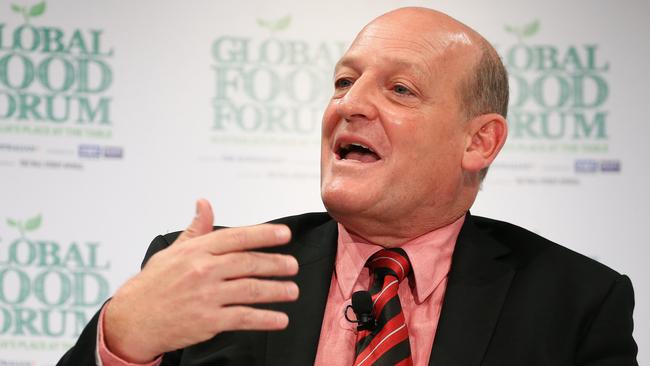
MARK ALLISON
ELDERS MANAGING DIRECTOR AND CHIEF EXECUTIVE
Late last year Mark Allison was out the door as retirement beckoned, but in June his plans changed, deciding to stay on as the head of Elders.
Next year will be Allison’s 10th at the helm of Elders, which has included guiding the company to a drought-breaking shareholder distribution in 2017, its first in a decade.
Since 2014, Elders has grown from a market capitalisation of $50 million to a peak of $2.2 billion, becoming one of Australia’s biggest agribusinesses.
Allison has helped guide the company through a tough 2023 as floods, declining livestock prices and a softening rural property market reduced underlying earnings to about $165 million to $175 million in August, well below the underlying EBIT of $232 million reported for the 2021-22 year.
ANIMAL-WELFARE ACTIVISTS
Sometimes friends, often foes: the conflicting ideologies between agriculture and animal-welfare groups are a constant. But the extent such groups are influencing the direction of agriculture — partially due to the perfect storm of Labor governments needing to appeal to Green-leaning city voters, and perceived growing consumer demands — was clear throughout 2023.
Woolworths was called out for linking its animal-welfare policies to the Business Benchmark for Animal Welfare – created by a UK-based animal activist group that aims to halve livestock production by 2030 and end factory farming. That its suppliers were being judged on standards made up by a group halfway across the world was truly alarming.
Next year should shed light on how the federal government plans to press ahead with shutting down live sheep exports by sea, while the Victorian government will finally introduce its new animal welfare laws – which appear to have been drafted in consultation to several animal-welfare groups, and just one farmer.
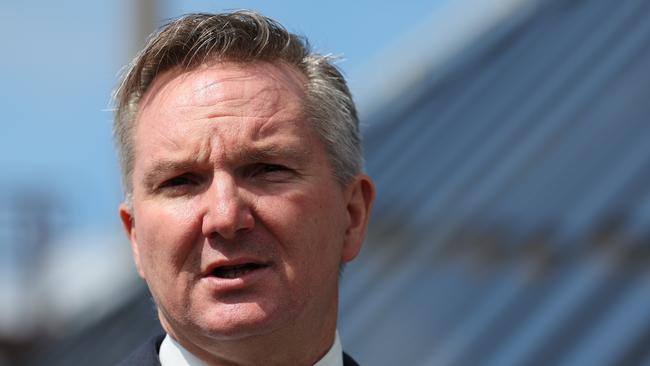
CHRIS BOWEN
MINISTER FOR CLIMATE CHANGE AND ENERGY
Climate change and energy minister Chris Bowen has consistently said the key to the nation’s future economic prospects is how the government harnesses opportunities presented by the energy transformation.
Bowen’s job though is more immediate in ensuring Labor takes big-ticket energy wins to the next federal election. His decisions more than any other minister will change farming practices.
However, a call last month to increase taxpayer underwriting of renewable energy projects, including increased wind and solar projects, five-fold signalled its policy settings had hit a speed bump on the road to its net-zero 2050 goals.
Bowen, a former federal treasurer, will soon roll out agriculture’s industry emissions sector plan – essentially to decarbonise the economy to ensure international financial and trade markets remain open for Australian exports and to attract billions in new investment in decarbonisation in Australia.
The Albanese government wants Australia to leverage critical minerals to become a renewable energy superpower and it is unwilling, as Bowen said on November 30, to “take a step off the pedal when it comes to our goals.”
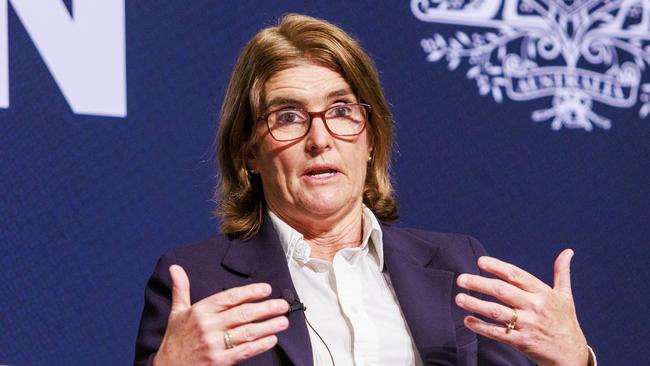
MICHELE BULLOCK
RBA GOVERNOR
Born in Melbourne, Australia’s first female governor of the Reserve Bank has credible country connections. When Michele Bullock was nine and still in primary school, the Bullock family relocated to Armidale and she went on to study at the University of New England.
After being elevated to the deputy governorship, Bullock told her alma mater’s magazine that her regional formative years had shaped her career.
“I want to be inclusive, welcoming and make a level playing field upon which everyone can contribute,” she said. “And I think I bring that from my country upbringing.”
With inflation easing somewhat at the end of 2023, all eyes will be on Bullock to see whether the RBA is keen to keep stepping up interest rates.
Higher borrowing costs have placed an economic dampener on all agricultural commodities. At one end, prospective primary producers are finding it harder to break into the property market. At the other end, urban consumers at tightening the purse strings when it comes to consumption at the supermarket.
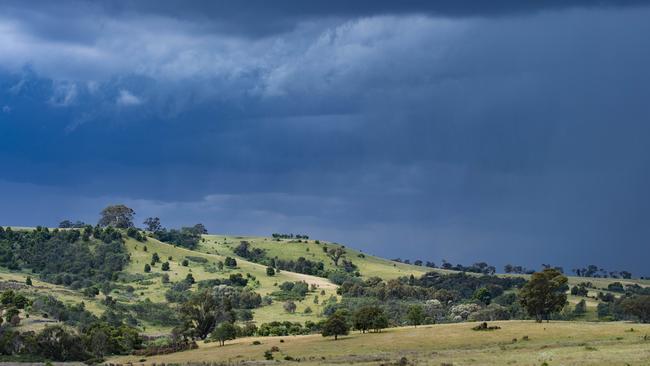
THE BUREAU OF METEOROLOGY
Farmers are always aware of the weather but the Bureau of Meteorology has elevated itself to a major influencer of agriculture after this year’s El Nino dance.
For months, the BOM issued warnings that there was a chance of El Nino, and to be “on alert”. The actual official announcement came in September, but the fear that this would bring drought conditions had enormous flow on effects, especially for the livestock sector.
Fearful of having bare paddocks and having to feed stock, livestock producers sold off numbers even if they had feed in the paddocks, and it caused a massive decrease in prices.
And all this was before the El Nino was even official.
The organisation has copped more flack for its predictions than normal, especially given widespread rain in November, when they predicted there was a 60-80 per cent chance of below-average rainfall for the month. Regardless of its accuracy, the BOM has been a major influencer of farming this year.

MARC DROUIN
PSP INVESTMENTS SENIOR MANAGING DIRECTOR AND GLOBAL HEAD OF NATURAL RESOURCES
PSP Investments, a Montreal-based fund that manages the superannuation funds of the nation’s public service, armed forces and the world-famous Royal Canadian Mounted Police, has made massive waves in Australian farming circles in recent years.
Led by Marc Drouin, in the past eight years the Canadian mega-pension fund has deployed more than $6.5 billion into Australian agricultural assets, including the acquisition of more than three million hectares and a portfolio of Murray Darling irrigation water entitlements larger than all, other than the federal government.
Notable PSP purchases include the $96 million acquisition of four central Australian cattle stations covering 1.1 million hectares northwest of Alice Springs and the historic Tubbo sheep station in NSW’s Riverina for $40 million.
Earlier this year, PSP Investments also paid $100 million to acquire the Steinhardt family’s Macadamias Australia enterprise for $100 million-plus, via operating partner Stahmann Webster.
It remains to be seen what and where PSP will invest next.
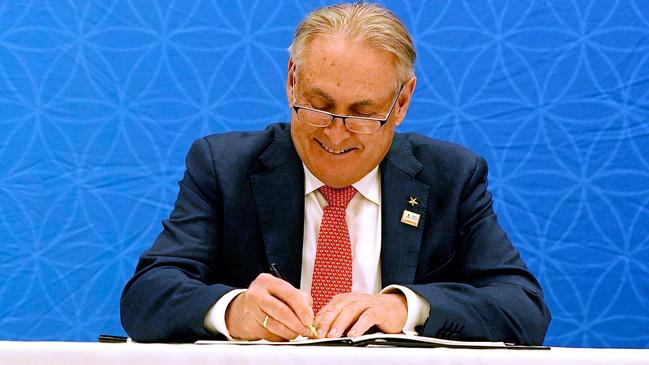
DON FARRELL
MINISTER FOR TRADE
Prime Minister Anthony Albanese recently told The Weekly Times that Australia’s Tade and Tourism Minister Don Farrell was “an honest and straightforward outcomes person” and “there’s no one I would want to negotiate on my behalf more”.
There is also good reason why the quietly-spoken and affable South Australian was appointed the government’s special minister of state. He is a key factional figure, covertly powerful and a sounding board for the PM.
The former union heavyweight, who led the Shop Distributive and Allied Employees’ Association at a state and national level, has also been exceptionally busy. Since May 2022 he has finalised trade deals with the UK and India and has been instrumental in thawing relations with China.
He is also popular with international counterparts and invites them to stay at his Clare Valley vineyard.
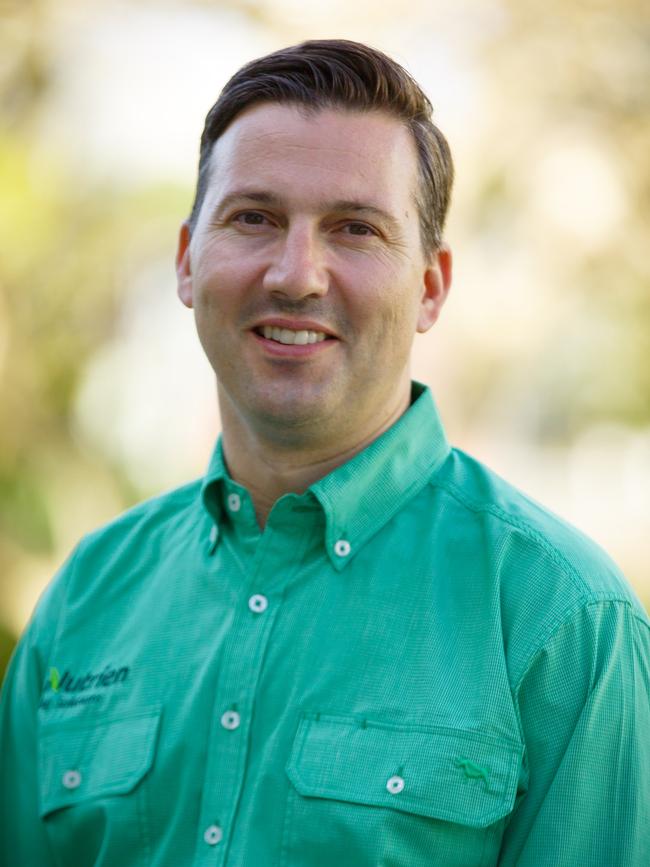
KELLY FREEMAN
NUTRIEN AG SOLUTIONS MANAGING DIRECTOR
Kelly Freeman may be a long way from home, but growing up in the Canadian grain-growing province of Saskatchewan, Nutrien’s Australia boss developed an in-depth understanding of what makes an agriculture operation thrive.
Heading up the Australian arm of the Canadian agri-giant, Freeman is overseeing a $100 million investment plan that aims to improve reliability of fertiliser and chemical supply Down Under, and help farmers capitalise on sustainability achievements.
As the world’s largest provider of crop inputs, fertilisers and agriculture services, Nutrien supplies more than 2.4 million tonnes of fertiliser a year to Australian farmers.
When Freeman started as MD on November 1 last year the company pledged to formulate more crop chemicals and animal health products in Australia, and invest in fertiliser infrastructure to safeguard against shortages, such as this year’s urea shortfall.
Nutrien was also investing in digital tools that would help farmers record and get paid for the “great sustainable outcomes they are delivering”, Freeman said.
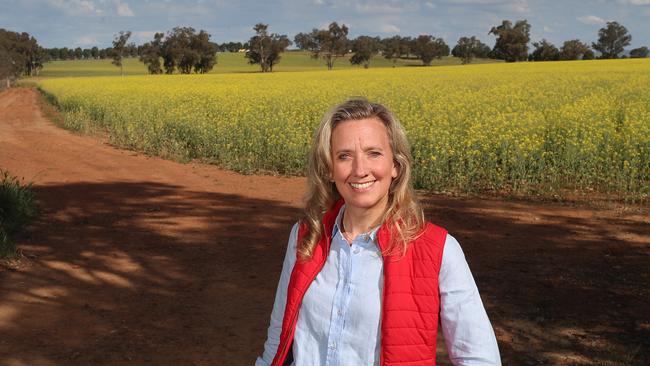
KRISTINA HERMANSON
NUVEEN NATURAL CAPITAL HEAD OF APAC AND AFRICA
Kristina Hermanson might be a newcomer to agriculture’s power circles but by no means is a stranger to the industry.
Raised on a dairy farm in the American Mid-West, Hermanson, 48, was appointed head of Asia Pacific and Africa at Nuveen Natural Capital in January.
In this role she oversees investment and strategy for a diverse portfolio of more than 65 properties and agribusinesses occupying 350,000 hectares of prime Australian farmland valued at $2.2 billion.
Backed by the New York-based Fortune 100 financial company Teachers Insurance and Annuity Association of America and 50 other global investors, Nuveen has positioned itself as a leader in the natural capital investment space, as it attempts to strike a balance between farm productivity, nature and climate.
“It is an exciting challenge and the challenge of our time,” the Sydney-based Hermanson recently told AgJournal. “Being right in the forefront of that as Nuveen being the thought leader in bringing new strategies on the ground is fantastic.”
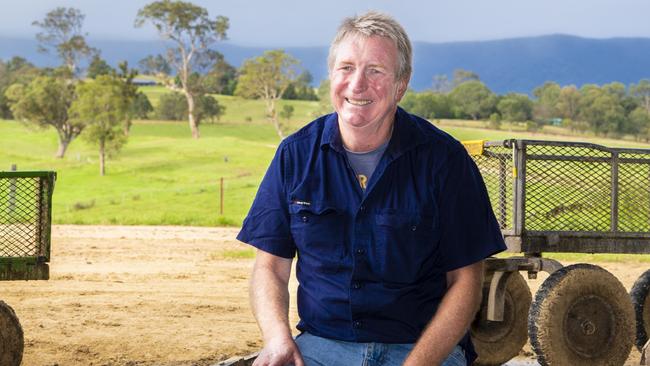
BARRY IRVIN
BEGA CHEESE EXECUTIVE CHAIRMAN
Bega Cheese boss and fifth-generation farmer Barry Irvin holds major sway over dairy farmgate fortunes in Australia.
As one of the nation’s “big three” milk processors, Bega Cheese has gone through a period of significant growth under Irvin’s two-decade tenure, last year processing more than 1.3 billion litres and raking in revenue of $3.38 billion, up 12 per cent.
Irvin is currently feeling the squeeze, however, paying high farmgate prices to lock in supply from Australia’s shrinking milk pool, with those costs contributing to a statutory loss of $233.7 million in 2022-23. But the seasoned agribusiness heavyweight says the company remains well positioned to deliver long-term profits.
“As we manage the volatility that can exist in a food and agricultural business, it is important to be confident in your strategy,” Irvin told shareholders earlier this year. “Our strategy remains on track as we continue to build a strong and more stable branded food business.”
Working with more than 4000 suppliers, Bega supplies Australian and international markets with everything from fresh milk and cheese to juices and peanut butter under much-loved brands Bega, Pura, Vegemite, Big M, Daily Juice Co and Dare.
Irvin is on a mission to grow Bega’s brand stable, acquiring Betta Milk and Meander Valley Dairy brands in an $11 million deal announced in August.
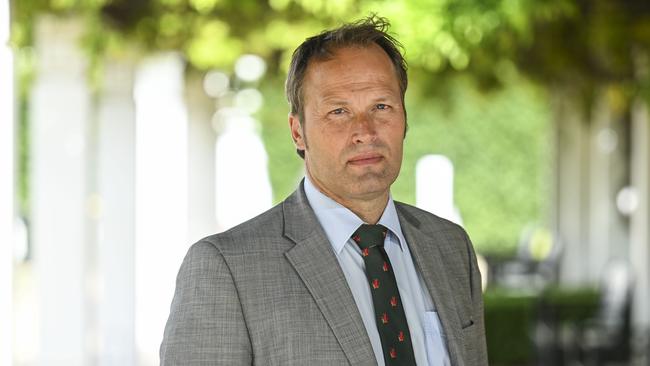
DAVID JOCHINKE
NATIONAL FARMERS’ FEDERATION PRESIDENT
The newly elected National Farmers’ Federation president certainly has big shoes to fill – his predecessor Fiona Simson stood down in October after a tenure many say helped put agriculture back on the agenda in the corridors of Canberra.
But Jochinke, a grains farmer from Murra Warra in Victoria’s Wimmera region, came out swinging on day one in the role, saying farmers were “in the fight of our lives” as he launched the ‘Keep Farmers Farming’ campaign.
“We cannot stand by and watch a government slowly erode the basic foundations of our farm sector,” he said.
“If that’s the path we continue down, we will be forced to make this government wear every misfortune it inflicts on Australia’s farmers like a crown of thorns. They will own every farm closure, every school struggling to stay open as families leave town, every extra dollar Australians are forced to hand over for their weekly shop.”
They’re fighting words indeed, but the battle will not be easy. Jochinke and the farming lobbies he leads are up against a Labor government that, if its water and live export policies are anything to go by, is determined to pursue its agenda no matter the consequences.
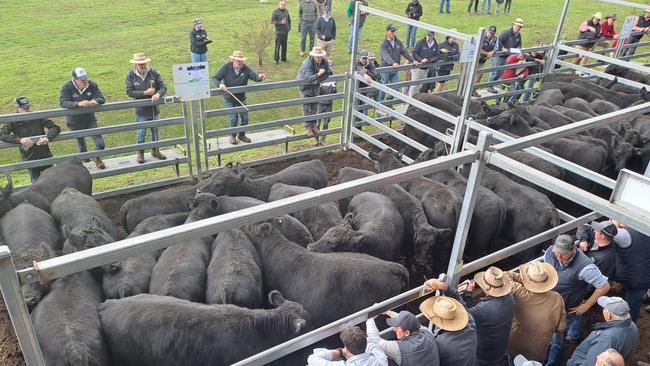
THE MEAT PROCESSORS
The fortunes of livestock producers have been in the hands of processors this year more than ever as the burgeoning national flock and herd came home to roost.
Big players like JBS Australia, Thomas Foods International, Teys, Greenhams and others have undoubtedly made big profits off the back of large numbers of stock on offer. Add to the mix the talk of El Nino, and a workforce that has gradually grown and allowing more stock to be processed, and it’s been a stellar turnaround for the meat processing sector.
The meat industry says the lower buy-in price has allowed processors to recoup some funds after three years of high livestock prices, and some of this has been invested in new and upgraded facilities across the nation.
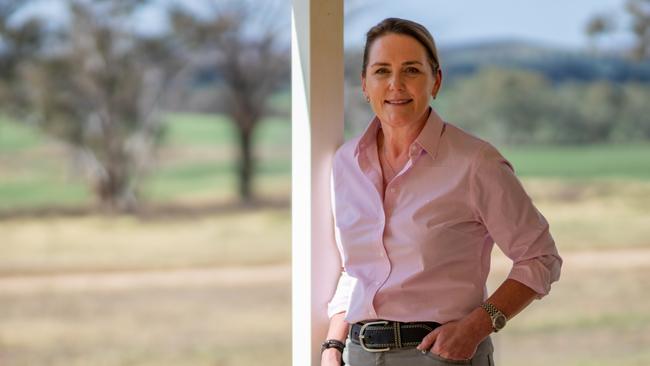
LIZ O’LEARY
MACQUARIE AG BOSS
Powerbrokers in Australian corporate agriculture don’t come much better known than Liz O’Leary.
Raised on a cropping and livestock farm near the Murray River at Tocumwal in NSW, O’Leary has the ability to influence entire industries in her role as global chair of agriculture and natural assets with Macquarie Asset Management.
MAM boasts more than $4.2 billion worth of rural property assets spread across Australia and South and Central America. Its Australian footprint alone occupies about 4.5 million hectares and remains active in the market having been involved in more than 68 transactions since 2015.
Its agriculture subsidiaries include the crops-focused Viridis Ag, Vitalharvest, Cubbie Station and Cowal Agriculture businesses, the livestock-focused Paraway Pastoral Company as well as the Forliance climate action platform, which operates more than 12 carbon projects across South and Central America.
Such is the scale of the business that it produces more than 297,000 tonnes of crops and is capable of running more than 560,000 sheep and cattle.
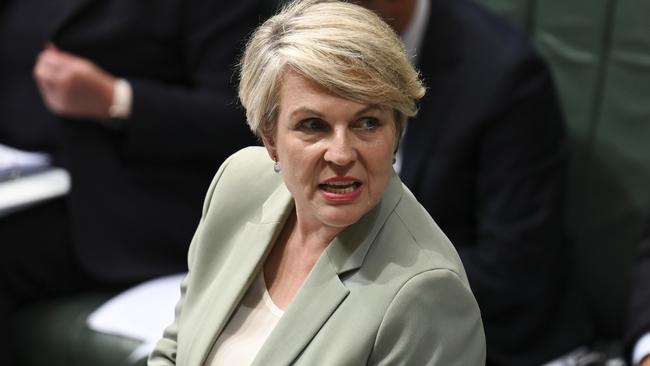
TANYA PLIBERSEK
MINISTER FOR ENVIRONMENT AND WATER
With her dual portfolio, Tanya Plibersek holds the policy keys to the issues that will likely have some of the biggest impacts on how farmers continue to feed and clothe the nation.
Plibersek has just steered through the most significant changes and contentious changes to the Murray Darling Basin Plan sign the document was first signed in 2012. With amendments allowing for further voluntary water buyback from irrigation communities now through parliament, her decisions on in this space will make or break not just agriculture, but the towns built around it.
It’s not just water policy farmers will be keeping an eye on, however. Changes to federal cultural heritage laws are on the cards, while questions around land use permissions and environmental approvals – for projects from mining to energy transmission – are never far from the spotlight.
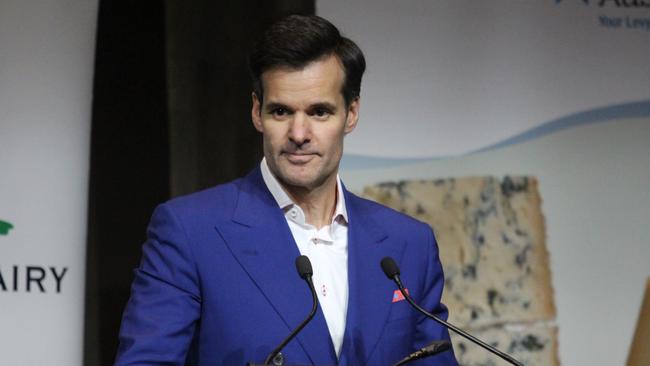
LINO SAPUTO JR
SAPUTO CHIEF EXECUTIVE OFFICER
Lino Saputo senior was a big cheese in Canadian dairy and the son is a slice of the old cheddar block.
Junior first made a mark on the Australian dairy sector more than a decade ago, eyeing off Warrnambool Cheese and Butter, which the Montreal-based processor took control in 2014. But it was in 2018 that the Saputo brand went truly national, taking over the flailing Murray Goulburn.
Saputo added Lion’s suite of Tasmanian dairy brands the following year. But the 2020s haven't been kind to Saputo Australia.
A shrinking milk pool has triggered a cost-cutting drive, with its Maffra factory ditched in 2022 and now Saputo is seeking to off-load its King Island Dairy investment.
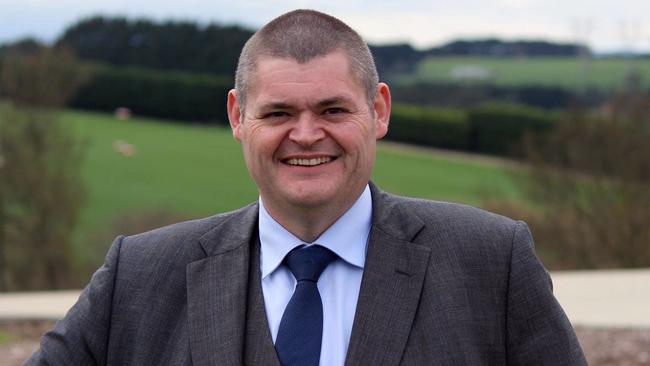
DANNY THOMAS
LAWD SENIOR DIRECTOR
At the top end of Australia’s rural property market, LAWD senior director Danny Thomas is the man at the centre of many top-dollar transactions.
In the past 12 months Thomas has brokered almost a billion dollars worth of farmland exchanges including the recent Kimberley Cattle Portfolio sale at more than $300 million, as well as the $120 million sale of Gundaline Station and the $85 million deal for the Jemalong Station.
And the rural real estate guru has still got plenty of Australian farmland on his books with landmark properties such as the $400 million Project Jaal offering, $90 Sunshine Farms aggregation and Duxton Farms’ $59 million Timberscombe aggregation, all looking for new owners.
In his time at LAWD, Thomas has also struck deals for the $600 million Lawson Grains Portfolio in NSW and Western Australia (105,000 hectares) and the $370 million Corinella Group Portfolio in western Victoria and South Australia (22,500 hectares).
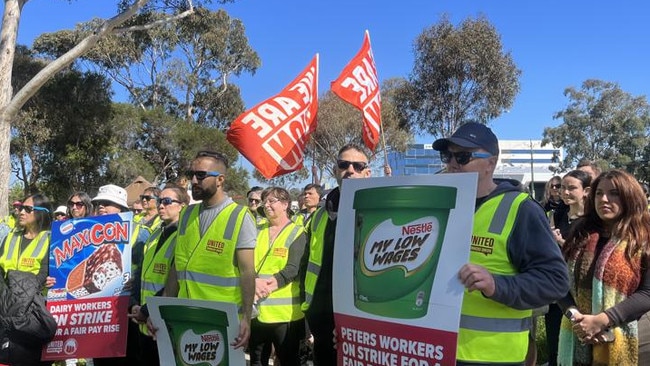
THE UNIONS
The Australian trade union movement has not flexed this much muscle since the WorkChoices era – despite overall membership being in steady decline.
The reasoning is simple. Many Labor MPs are backed by a large worker groups and, after a decade in opposition, the relationships are being reflected in the legislative pipeline.
The influence of ACTU secretary Sally McManus has also been profound in taking on big business during the debate on the government’s controversial Closing Loopholes industrial relations changes.
The National Union of Workers has also jumped on exploitative and undocumented migrant worker issues to have a big say in changing rules applied across agriculture through various government committees.
The weight of its movement’s voice is also being heeded across a range of political and social views, from Indigenous affairs to immigration to decarbonisation.
When it comes to the Albanese government, as a popular protest chant goes, “I say union, you say power.”
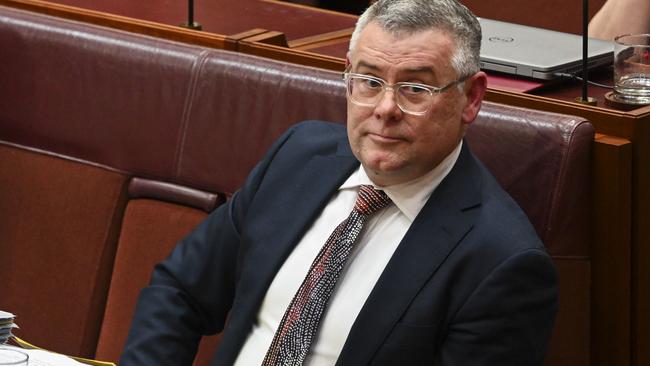
MURRAY WATT
MINISTER FOR AGRICULTURE
The nation’s 35th federal agriculture minister is a dairy farmer’s son and a former practising lawyer who works with an open-door policy and often disarming honesty.
However, he is also the man in the middle in putting an agriculture sector – roaring to become Australia’s next $100 billion industry – on the same page as a range of Labor policies so controversial the National Farmers’ Federation has declared war on them.
While all the while balancing the needs and government narrative around the business community, industry, workers, climate and energy stakeholders.
The Queensland senator’s job is different to any other previous agriculture minister.
From biosecurity incursions and fees to decarbonising agriculture, his decisions and advocacy with other ministries will indelibly determine the medium-to-long term future of farming in a way never before witnessed.
He is also the minister for emergency management.

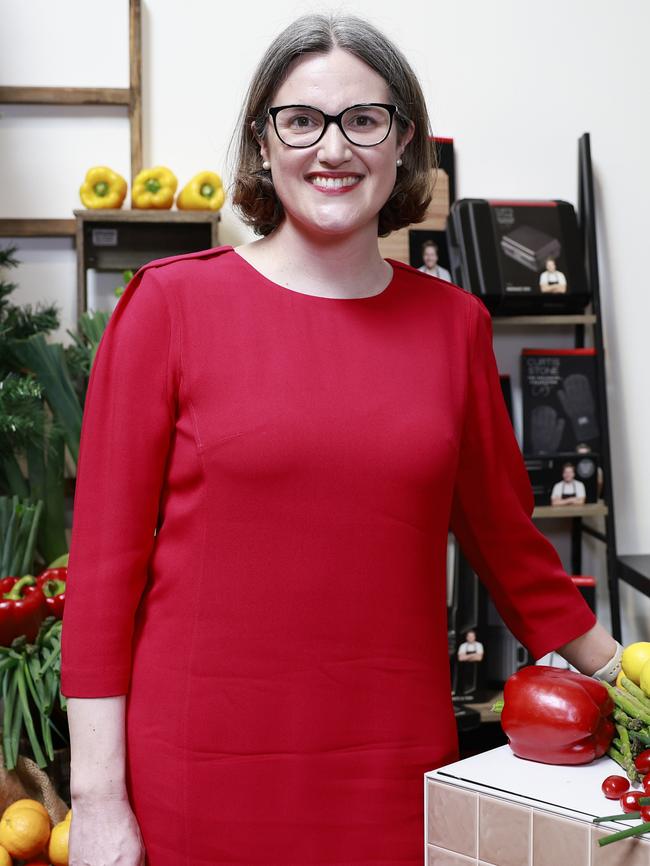
LEAH WECKERT AND BRAD BANDUCCI
COLES AND WOOLWORTHS CEOS
The heads of Australia’s big two supermarkets are the ultimate agribusiness playmakers, influencing everything from on-farm animal welfare practices to farmgate price expectations.
Newcomer Leah Weckert has been chief executive of Coles for just seven months, stepping up as Steven Cain’s successor in May and bringing years of senior experience. Meanwhile Brad Banducci has been at the helm of Woolworths since 2016.
Both retailers posted profits of more than $1 billion in 2022-23, leading to calls from consumers and farmer-suppliers for more price transparency during the current cost-of-living and cost-of-farming crisis, and quicker action on price negotiations with suppliers.
Supermarkets’ role in the livestock supply chain came under scrutiny this year, as The Weekly Times revealed Woolworths and Coles had aligned with a “radical” global animal-welfare benchmark that was pushing companies to scale back the number of animals farmed for food. Both retailers eventually cut ties with the controversial Business Benchmark for Farm Animal Welfare, in a win for the livestock sector and common sense.

DAVID WILLIAMS
KIDDER WILLIAMS MANAGING DIRECTOR
At the forefront of Australian agribusiness is the larger-than-life Kidder Williams managing director, David Williams.
Founder of the Melbourne-based advisory firm, Williams has sat at the heart of many of Australia’s biggest food and agribusiness transactions for the past 35 years.
Some of the most notable notches on his belt include rescuing leading Tasmanian salmon company Tassal from receivership before it was sold to Canadian aquaculture giant Cooke Inc. with a $1.1 billion takeover offer.
He has also guided almond grower Select Harvests, helped Bega Cheese expand to a major national food company, and persuaded global giant Mondelez to sell the iconic Vegemite brand back into Australian hands.
This year Williams’ service have been engaged by Tasmania’s Pure Foods, who have grand expansion plans. He has also been called in to advise Bubs Australia, after their share price dived 75 per cent in the past year, trading at 12c currently.




